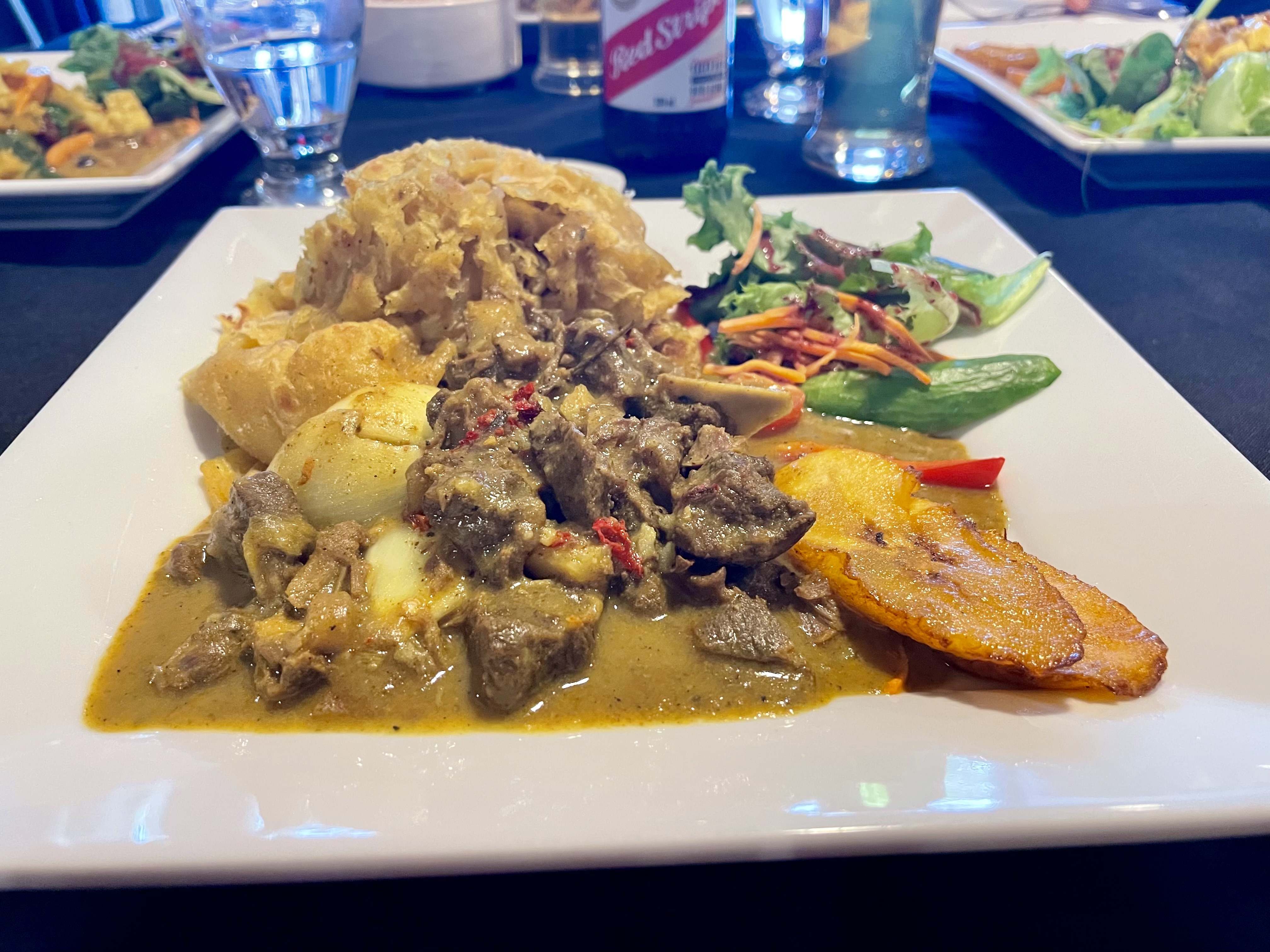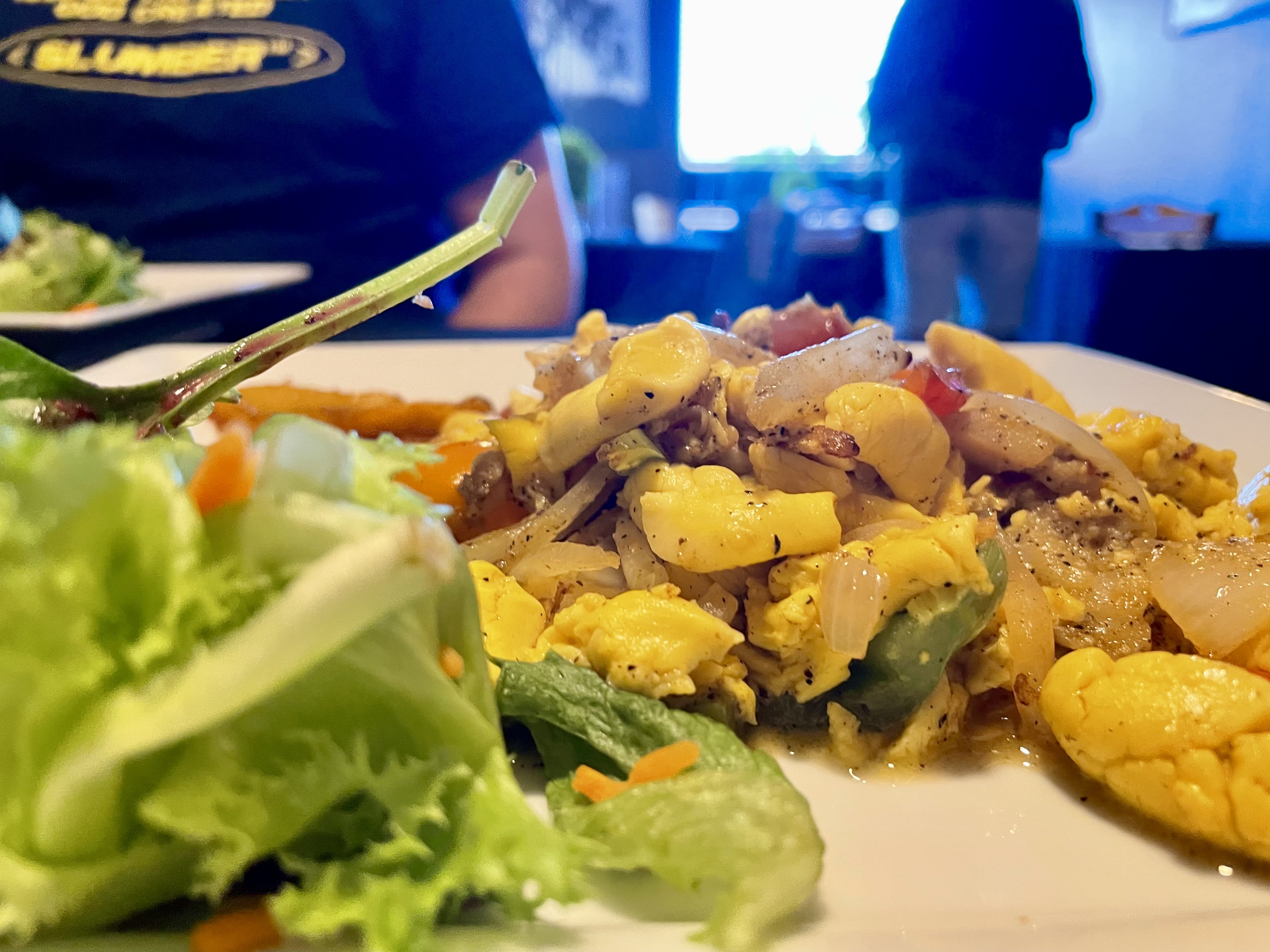Eat the Strip
Lil' Negril Island Grill
261 Centrepointe Dr, Nepean, ON K2G 6E8
By: Ameya Charnalia | July 23, 2025 11:51 AM
Tucked beside a physiotherapy centre in a Centrepointe strip mall, Lil' Negril Island Grill isn’t the kind of place you stumble upon. You come here because someone told you to, because you read about it, or because you’ve been before and you’re coming back. That last group? It’s big. When we visited recently, a table of seven regulars were finishing a birthday meal—someone had just turned 96—and the vibe was unmistakably celebratory.
At the centre of it all is Jaydean, who greets us with the kind of warmth that makes you feel like you’ve walked into her living room. She’s quick with a joke, full of stories, and effortlessly welcoming. Her partner, Glenmore, runs the kitchen—a trained chef originally from Jamaica by way of the Cayman Islands, where the couple met. Together, they opened Lil’ Negril in 2013. It was, they tell us, always the dream.
The interior is clean and inviting—laminate floors, a full-sized Jamaican flag hanging proudly behind the counter, and walls painted to resemble a tree canopy, dotted with framed images of the Caribbean. It’s got more polish than most of the industrial gems we visit, and yet it still feels personal, not polished. The kind of place where someone remembers your order and your name.
We came as a group of four this time—my partner Danielle, myself, and our friends Ewan and Beatrix. The latter is vegan, and Lil’ Negril stood out during our search for a place that could cater to both a craving for ackee and saltfish and a plant-based plate with real soul. Turns out, Glenmore and Jaydean are not just accommodating—they’re enthusiastic about making vegan diners feel seen and fed. Beatrix gave her plate a glowing review, noting the generous portion and rich, well-balanced spice that brought it all together.

Danielle and I split two mains: the bust-up goat roti and the ackee and saltfish. The goat arrived wrapped in a soft, flaky roti that was buttery and golden, almost crumbling in your fingers. The meat itself—bone-in and fall-apart tender—had been cooked low and slow, infused with warm spices that went deep into the fibres. There was heat, but not the aggressive kind. The hot sauce they offer on the side has a pepper-forward profile, fragrant and flavourful without overwhelming the dish. The roti format reminded us of a deconstructed version, with the wrap acting more as a vehicle for scooping and savouring than as a tight parcel. It’s the kind of dish that asks you to slow down, eat with your hands, and enjoy the moment.

The ackee and saltfish came plated with bright salad greens dressed in a raspberry vinaigrette, which offered a tart contrast to the savoury main. If you’ve never had ackee before, you might mistake it for scrambled egg—it’s a soft yellow fruit that takes on the flavour of what it’s cooked with, in this case, the salted cod. The pairing is Jamaica’s national dish for a reason: the salt and brine of the fish lift the creamy, slightly nutty ackee into something deeply comforting and surprisingly complex. Every bite landed differently, depending on what it landed next to on the plate, but the overall impression was one of balance, richness, and quiet confidence.
After the meal, we sat with Glenmore and Jaydean. Their story isn’t just about food—it’s about building something lasting. Glenmore trained as a chef across several countries, and it shows in the consistency of the dishes. "If it’s not the same every time, people won’t come back," he tells us, matter-of-factly.
Jaydean reflects more emotionally: “The customers really supported us during COVID… they feel like it’s home here.” Some visitors drop by just to say hi before heading south for the winter. One regular comes from Syracuse, New York. Another swears Glenmore flies in the pork from Jamaica. (He doesn’t. But it’s that good.)
Even government officials have taken notice. “The Jamaican embassy folks eat here,” Jaydean says with a grin. “And when people from the Trinidadian government visit Ottawa, they stop by too.”
It’s that kind of place. Familiar faces, familiar food, and a kind of easygoing warmth that feels increasingly rare.
There’s something enduring about Lil’ Negril. The prices are fair—our mains were all in the $16 to $20 range—and the portions strike that sweet spot between generous and manageable. But what sticks with us most is the atmosphere: open, welcoming, full of life.
“We love it,” Jaydean says. “It’s one of the best jobs.”
In a city full of hidden corners and culinary secrets, Lil’ Negril stands out not just for its food, but for the heart behind it. Fourteen years on, that heart is still beating strong.